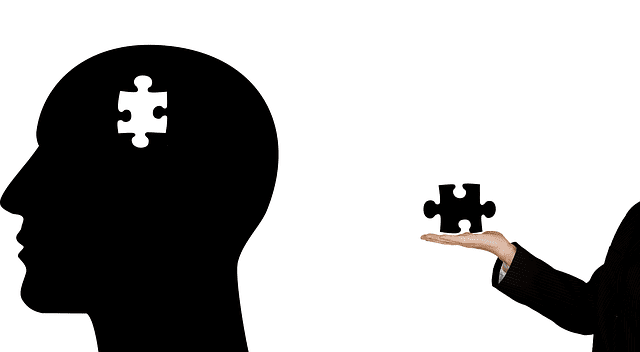Co-occurring disorders are two or more behavioral health disorders which occur together in the same person. The term is often used to describe any mental health disorder that is accompanied by substance abuse, a problem that affects millions of Americans. The reasons may vary widely from one individual to the next, but the symptoms are sometimes very similar. An individual who is living with a mental health disorder — such as schizophrenia — may abuse drugs or alcohol in order to escape his or her own feelings of helplessness or to numb emotional pain, while a person who is suffering from PTSD might turn to substances for the same reasons.
It’s important to understand how co-occurring disorders work, how they affect an individual, and how they can be treated. This is because the issue goes both ways: not only might a person abuse substances to lessen or numb the symptoms of a mental health disorder, but the substance can greatly enhance or exacerbate those symptoms, creating a separate issue. This means the individual must be treated in a very specific way.
“The relationships between severe mood disorder and substance use problems certainly go in both directions — with people using substances to blunt severe symptoms, and those substances making symptoms worse in the long run,” says psychiatrist Dr. Gregory Simon.
You can read more about co-occurring disorders and their effects here. Then, keep reading below to find some helpful tips on how to spot such disorders in a loved one and what you can do to help.
What to look for
Because the symptoms of drug abuse can mask those of a mental illness, and vice versa, a co-occurring disorder can be difficult to diagnose. There are, however, a few patterns you can look for in the behavior of loved ones you suspect of suffering from co-occurring disorders.
- If they are already receiving treatment for a mental health issue but don’t seem to be improving, it could be because the abuse of a substance has complicated things.
- If they are receiving treatment for substance abuse but their behavior hasn’t drastically changed, it could be because a mental health issue is at the root of the problem.
- Depression and other mood disorders often coexist with substance abuse, and these can alter a person’s appearance, behavior, and ability to perform at work or school.
How to help
It’s important to realize that co-occurring disorders are actually two or more disorders intertwined. This means that they must be treated together, at the same time and by the same professional who will have a working knowledge of the individual’s needs. Working on one will not conquer the others; treating all of them together will create a better chance of success in recovery and will allow the sufferer to set goals, to learn more about his or her disorders, and to ease into social situations and find gainful employment when necessary.
Look for assistance
It’s hard for an individual who is living with co-occurring disorders to get through it alone, and no matter how much you care about your loved one, you can’t help him or her alone, either. It may take a group of people — professional therapists, trained counselors — or a combination of resources to help your loved one move successfully through recovery. Fortunately, there are several resources available online depending on the nature of the disorders, including some for veterans suffering from posttraumatic stress disorder. You can learn more about that here.
Helping a loved one get to a place of peace and recovery is never easy, and there may be setbacks that leave you both feeling frustrated and helpless. However, with the right treatment plan, your loved one can learn how to get healthy and move on to the next phase of his or her life.
If you or someone you know experiences mental health issues, it is important to seek help from a qualified professional. Our Resource Specialist can help you find expert mental health resources to recover in your community. Contact us now for more information on this free service to our users.
Author Bio: Caleb Anderson developed an opiate addiction after being in a car accident. He’s in recovery today and wants to inspire others to overcome their addictions.
The opinions and views expressed in this guest blog do not necessarily reflect those of www.rtor.org or its sponsor, Laurel House, Inc.
Recommended for You
- The Intersection of LGBTQ+ Identity and Mental Health - December 9, 2024
- What Are the Signs of Self-Harm? A Comprehensive Guide - December 5, 2024
- People-Pleasing: Definition, Examples, and What You Can Do Instead - December 2, 2024






I am a Substance Abuse/Mental Health counselor. I think it’s important that when we get clients who are in early recovery who present with mental health symptoms (such as depression), we consider the possibility that those symptoms are due to the mind/body adjusting to life without chemical abuse. That is, if someone is abusing substances for a significant period of time and they are attempting to remain abstinate, there will be a period of time where they will feel not quite right mentally and/or emotionally. This may not mean they have a co-occurring disorder but rather they need a few weeks to return to “normal”. I have seen in some instances clients get diagnosed too quickly with a mental health issue. One important aspect to address is what their mental health status was before they started abusing substances. This can be a better indicator to help diagnose them during early recovery.
Gary,
You make a really good point. Many people with a substance use problem may show signs of depression, anxiety, paranoia or obsessive thoughts before, during or after use. That doesn’t necessarily mean they have a “mental illness,” although it could be a sign of underlying mental health problems.
Experiencing depression does not mean a person needs to be treated for a depressive disorder. It can also be a reaction to problems that occur in life, including addiction. That type of depression often subsides when the problem is resolved.
The difference between a depressive disorder, situational depression, and addiction-induced depressive disorder can be hard to judge, even for an expert. This is why I recommend that anyone going through addiction treatment and experiencing depression or other mental health symptoms talk with their doctor, counselor, or therapist about it.
Thanks for commenting. It’s always great to hear from you!
Jay